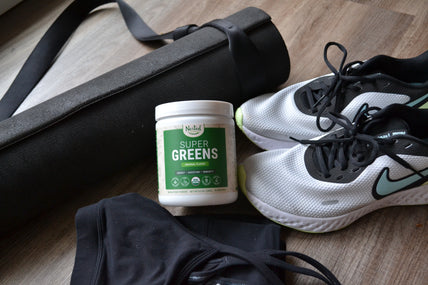Vitamin D – The Sunshine Drug

Vitamin D is arguably one of the most important vitamins which we require for the functioning of a healthy body. Unfortunately, this fat soluble vitamin is present in very few foods. Therefore, it is often added to foods or available as a dietary supplement.
Vitamins D is primarily produced within the body by the kidneys and liver when ultra violet rays from sunlight strike the skin and trigger vitamin D syntheses. Contrary to popular belief, Vitamin D is a steroid hormone not a vitamin – with a major responsibility for which other ‘vitamins’ wish they could take credit.
The importance of Vitamin D is often underestimated. This essential vitamin promotes calcium absorption in the gut. It is also essential for health bone growth and strength. The absence of vitamin D can contribute to brittle and misshaped bones. Sufficient levels of this Vitamin can prevent rickets in children and osteoporosis in older adults. Vitamin D is also responsible for modulating cell growth, building up your immune system and helping your body fight infection.
As I said earlier, the best source of Vitamin D comes from exposure to the rays of the sun.
But here’s the catch. Most people living in the Northern Hemisphere don’t get enough sunlight. During the winter months the sky is often overcast or the weather is so cold we prefer to remain indoors. Many also spend their daylight hours working indoors under artificial light. For some their only exposure to the rays of the sun take place on their walk to our car – if it’s not parked in the garage or the underground parkade.
Fortunately, the body is usually a good indicator of what we need. But in the case of vitamin D this is not necessarily true. Most people don’t actually understand how vitamin D works. You’re body recognizes vitamin D by the levels of sodium or potassium that you are consuming.
Have you ever wondered why in Russia soups and stews are extremely popular during the winter months? This is because our bodies are sun deprived, and most root vegetables are high in sodium which alerts are body that we are not getting vitamin D from the sunshine. If you consume fruits which are high in potassium this tricks our bodies into believing we are getting vitamin D from an external source. In so doing, your body will actually stop activating the vitamin.
Further, many these days do not get their vitamin D levels measured. It’s difficult to judge how much vitamin D you need by looking at the sundial.
What is the solution to this problem? What can you do to insure that your body is getting sufficient amounts of this essential vitamin?
1) First of all you need to know that the standard recommendation of Vitamin D is 1000 IU per day. However, new research suggests anywhere from 3000-5000 IU per day is what is necessary for people living in Northern Hemisphere.
2) Visit your local doctor and ask him to check your current level of vitamin D. Dr Mercola suggests levels of 50-70 ng/ml for optimum health.
3) Begin to consume foods rich in Vitamin D.
. Cod liver oil
. Swordfish
. Sockeye salmon
. Tuna fish
. Yogurt, fortified with vitamin D
. Sardines
. Liver
. Eggs ( Vitamin D is found in the yolk)
4) Dietary Supplements play an important role in ensuring that we have sufficient levels of vitamins D in our bodies. For example, the American Academy of Pediatricians recommends that exclusively and partially breastfed infants receive supplements of 400 IU/day of vitamins D shortly after birth and continue to receive these supplements until they are weaned.
In summary, obtaining sufficient vitamin D from natural sources is difficult, especially in winter months. Therefore, it’s important to consume foods which are rich in vitamin D. For the majority of people a high quality supplement is necessary to achieve desired vitamin D levels.
As we look ahead we at Nested Naturals want to wish you a happy and prosperous New Year!



